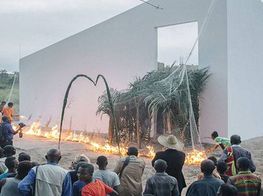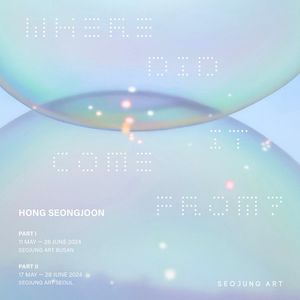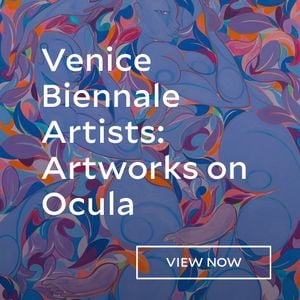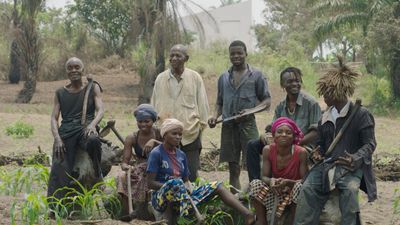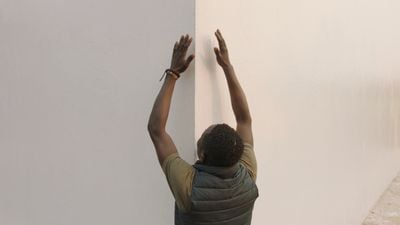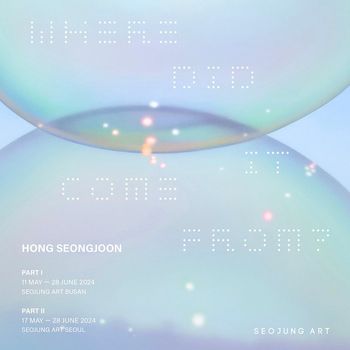Renzo Martens’ Film ‘White Cube’ Embodies the Phrase ‘Joy to the World’
Martens helped establish an art gallery on a former palm oil plantation in the Congo, offering an out to people otherwise condemned to hard, dangerous work. 'You see the immensity of the talent and joy that goes to waste,' he said.
Video by Sam Gaskin. Footage courtesy Renzo Martens. Copyright Human Activities, 2020. Music: 'Bamaya' by Akoko Nante Ensemble.
There's a key moment in Renzo Martens' film White Cube (2020), which documents his efforts to establish an art gallery on a plantation in the Democratic Republic of Congo.
When a plantation that provides palm oil for Unilever decides to kick Martens out, the artist breaks down.
'Unilever has been involved in the mass slaughter of Congolese historically,' he told Ocula Magazine. 'What I endured in the Congo was peanuts compared to what people have endured historically and what they endure still in Congo and elsewhere on the planet. I, with my white skin, my Dutch passport, my art council funding, I was kicked out and the fact I cry like a baby over it adds another layer to my ignorance in a way — ignorance how a world I benefit enormously from, how cruel it is to people who are suffering from it.'
It's a very different Renzo Martens to the callous character we encounter in Enjoy Poverty (2009).
'I think in the film Enjoy Poverty I try to embody capitalism if you will,' he said. 'I teach people how they could benefit from making images of poverty. I say unfortunately that's not going to work, but you can still enjoy poverty.'
'That's indeed a character that I play out. It's not that hard to play out because indeed in economic terms I, and pretty much anybody who's going to see this video, it's the position we have in global value chains.'
Enjoy Poverty is a powerful critique of capitalism, but Martens saw its limitations.
'In the end it only created benefits in already rich places,' he said.
'That's kind of the beginning, in a way, of White Cube. Can a film like Enjoy Poverty or a critical intervention altogether, could it have benefits on a plantation rather than in an art centre or a white cube in a wealthy place,' Martens said. 'That's the whole premise. Let's see if that could work. And when I break down and cry you see it doesn't work. The benefits of critical art cannot accrue, are not allowed to accrue, in the places that this art supposedly engages with.'
In White Cube, Martens hosts a conference, complete with tote bags, where economist Richard Florida argues that even without any art world infrastructure, people are inherently creative. His point is immediately proved when Martens moves his project to the town of Lusanga, formerly known as Leverville, where locals make striking sculptures out of little more than river mud. Martens has these sculptures cast out of chocolate, an allusion to the extraction of palm oil and cacao by companies like Unilever, whose founders gave Leverville its name.
The success of the artists in Lusanga communicates the great waste of talent and creativity under an economic system that gives billions of people no option but hard, tedious work.
'The immensity of the talent and the joy—the joy!—that goes to waste,' Martens added. 'When people are able to build up their own worlds, then they do. People do.'
Matthieu Kasiama, a former plantation worker who offers his five falls from towering palm trees as his only credentials, emerges as an instant star. He visits an exhibition of the chocolate sculptures in New York where he greets them as family, touching and kissing them, an approach he also takes, to the horror of conservators, when he visits Congolese artefacts at the Metropolitan Museum of Art.
'I think what is very distinct about Matthieu and his colleagues is that he has not ascended into the middle class or the upper class,' Martens said. 'He didn't go to art school, didn't have a birth certificate let alone a passport, he has not had the opportunity to go to secondary school or primary school, etcetera, etcetera, etcetera. Matthieu, in that way, is uniquely positioned to represent the billions of people with whom no art curator ever speaks. And you see immediately that he's completely up to the task.'
Altogether, Martens estimates that the artists in Lusanga have now raised over US $150,000 through their art. They've used their earnings to buy back 65 hectares of land, creating 'post-plantations' they can farm for themselves.
For now, they still depend on Martens to find buyers for their works and provide other kinds of support, but he says independence should not be the goal.
'We couldn't have this Zoom call without being dependent on people in Congo working in coltan mines,' Martens said. 'I don't know why Congolese miners or plantation workers would have to be independent from you or me. We are all dependent on each other. The question is whether these interdependencies can be regenerative rather than exploitative. Can they be equal, can they be structured more democratically. Can they be more horizontal in a way? I think that should be the goal.' —[O]

